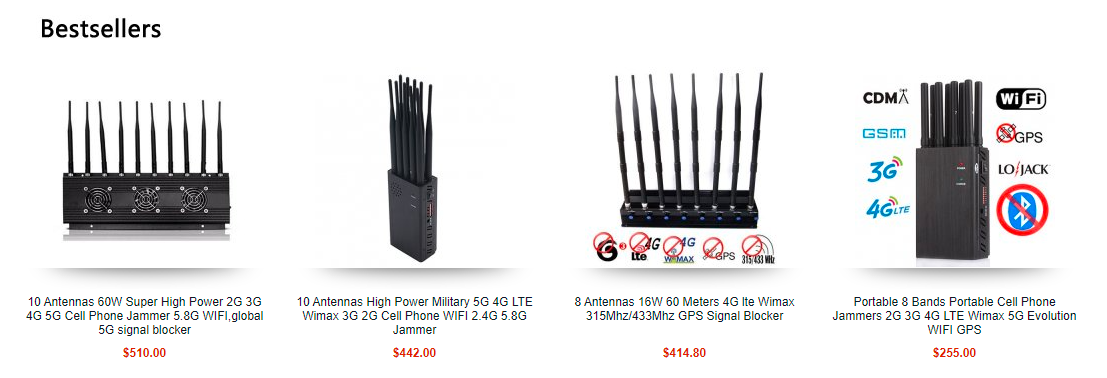Find Out Which Cell Phone Performs Best?
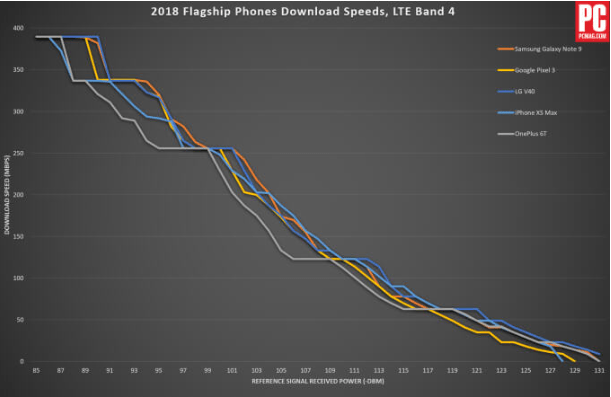
Better Reception on Android Phones? Debunking the Myth of iPhone’s Inferior Connectivity
In today’s world, smartphones have become an essential part of our lives and their functionality largely depends on a stable network connection. While we often discuss factors that can affect network quality, it’s worth exploring whether the type of smartphone you use plays a role in this.
Although different brands may use different antennas and network bands, there is no clear evidence that one brand has better reception than another. It’s also difficult to compare reception across different phone models since each model comes with its own unique hardware and software configurations.
However, there are a few generalizations that can be made about the types of smartphones that tend to have better signal performance. For example, smartphones with larger screens and bigger batteries may have better reception as they can accommodate larger antennas. Similarly, metal-bodied smartphones may offer more reliable reception compared to those with plastic or glass exteriors.
Comparing Cellular Reception of Android and iPhone Devices
In 2018, PCMag put the iPhone XS, iPhone XS Max, iPhone XR, Samsung Galaxy Note 9, Google Pixel 3, LG V40, and OnePlus 6T to the test. Their findings revealed that the Samsung Galaxy had better reception than any of the iPhones. Despite this, the LG V40 emerged as the best performer overall.
It’s worth noting that all the tested Apple phones came with Intel modems, while all the Androids featured Qualcomm modems. Generally speaking, Qualcomm phones maintained faster speeds for longer periods and handled low-signal conditions better than Intel-powered iPhones. This was largely due to Qualcomm’s advanced LTE technology, which Apple was slow to adopt.
In essence, Android phones were able to pull ahead in the reception race because of the Qualcomm LTE-Advanced technology, while Apple’s reluctance to immediately implement new technology worked against them. Ultimately though, the LG V40 proved to be the best all-around smartphone for reception performance.

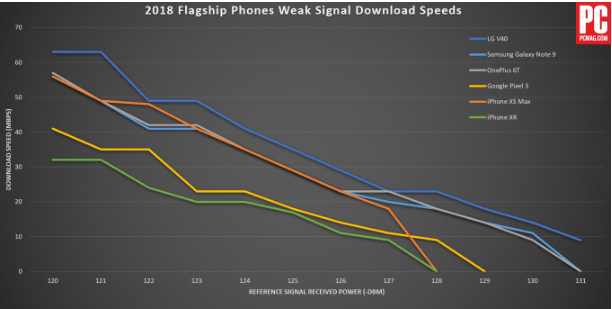
When it comes to cellular reception, many people wonder if Android phones outperform iPhones. In a 2018 study, it was found that Android phones had faster cell speeds than iPhones depending on the device used and signal strength. However, the difference was not significant enough to be a major consideration for most users.
Unfortunately, there has not been a recent study to compare the cellular reception of newer flagship devices. However, we conducted a basic test using the iPhone 14 Pro Max and Samsung S22+ equipped with Qualcomm’s Snapdragon X65 modem. Using the Speed Test by Ookla, we found that both devices performed well, and there was no clear winner in terms of signal strength or speed.
It’s important to note that cellular reception can be influenced by many factors such as location, carrier network, and phone settings. Therefore, it’s difficult to make a definitive statement about which device performs better overall. Ultimately, users should choose a phone that meets their specific needs and usage patterns, rather than relying solely on studies or comparisons.
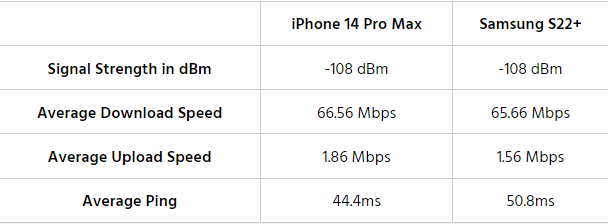
Complete Test Results
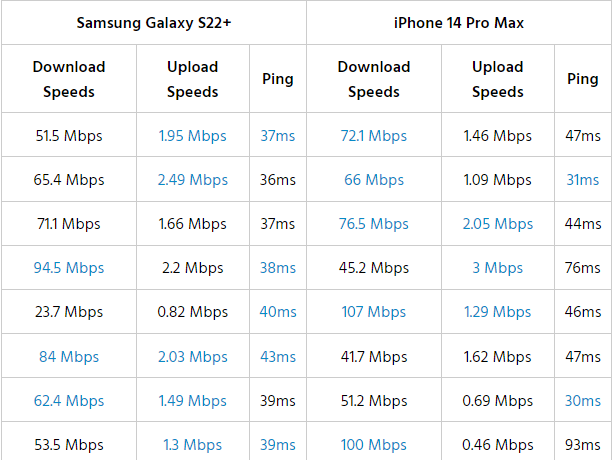

Results were close. On average, though, the Samsung phone performed slightly better than the iPhone in a -108 dBm (weak) signal environment. Looking at the individual tests, there were many instances where the iPhone beat the Samsung, and vice versa.
Many other comparisons between the devices state the iPhone is better. Since the new iPhone couples a Qualcomm modem with Apple’s new A15 Bionic processor, it’s possible. However, those tests as well as ours were conducted in controlled signal environments. Results will vary out in the wild.
So, Should I Switch to An Android Phone? Which Android Has the Best Reception?
For most smartphone users with a decent signal, the discrepancy in reception is not terribly noticeable. If you’re a heavy gamer with dreams of VR, then yes, it might be in your best interest to investigate Androids.
According to another PCMag study, the Android with the best reception is the Samsung Galaxy S22 series. When tested, the S22 devices outperformed its predecessors and Google’s latest Pixel. PCMag dubbed the S22 a low-signal beast.
For casual phone owners looking to talk, text, stream a little, and check in to social media here and there, it’s fine to choose your phone based on preference.
Nine times out of ten, if you’re experiencing sluggish service, it’s probably not your phone that’s to blame. Unless, of course, you’re still clinging to a model that’s more than five years old. Newer phones are equipped with the latest and greatest technology, so go for the upgrade if you need more speed. The issue is simply weak cell reception.
Regardless if you have an iPhone or an Android, a cell phone signal booster can help you get the reception you deserve.
Why Don’t All Cell Phones Offer the Same Signal Reception?
Simply put, not all cell phones are created equal. Some manufacturers prioritize performance, others prioritize aesthetics, and some prioritize cost. The quality of your reception comes down to the antennas, radios, and other components used. Another important factor that plays into cellular reception is your signal environment.
Which Cell Phone Has the Best Reception in Areas with Weak Signal?
Referencing the 2018 PCMag study, Android devices tend to perform better in areas with weak signal. Currently, the best Android on the market is the Samsung S22 series. When compared to other Androids, they were able to maintain a better connection in poor coverage areas.
However, without an up-to-date cell reception analysis, we cannot say for certain which phone performs best in weak signal areas.
Does a 5G Phone Get Better Reception?
5G uses new technologies and frequencies making it much more efficient than 4G. It offers faster speeds, lower latency, and insane capacity. Thus, in areas where 5G is available, 5G phones can experience better connectivity than 4G phones. Equipped with the latest tech, they may also get better reception in 4G/LTE areas.
Is My Phone Slowing Down My Cell Service?
First things first, you need to rule out the signal-busting factors that might be interfering with your signal. If it’s not natural phenomena, building materials, or congestion, you may just be too far away from your nearest cell tower. You can locate your nearest cell tower using our handy guide. And, like we mentioned above, if your signal is weak, Android reception does tend to hang on a little longer.
No matter how powerful your Android phone or iPhone may be, if the signal strength isn’t there to begin with, your speed won’t matter.
Should I Switch to a Different Cell Phone Service Provider?
Cell coverage varies across the country. Before you place all the blame on your iPhone or Android, it’s best to do a little research using coverage maps. You can have the best phone, but without a strong signal, your lightning-fast devices can’t reach their top speeds.
Do Newer Phones Have Better Reception?
Newer phones do tend to have better reception than older phones. They’re built to tap into more of the spectrum as new cellular frequencies are made available. Being able to access more networks (4G, LTE, and 5G) allows cellular devices to capture the best and fastest signals. Designed with the latest technology, they’re also able to maintain a better signal for longer in more places than older models.
So, which smartphone would give you the best cell signal? Technically, any newer phone will provide you with the best signal reception. It doesn’t matter if it’s from Samsung, Apple, Google, or LG.
Can Cell Phone Antennas Hurt Cellular Reception?
The antenna is crucial to your phone’s hardware. If the phone manufacturer integrates a poor-quality antenna, you’ll experience poor cell reception.
Way back in the day, mobile phones had long exterior antennas to help capture the best cell phone signal possible. Now, they have small internal antennas. The evolution of cell phone antennas has helped phones shrink to pocket size and have an aesthetically pleasing design. Unfortunately, sometimes manufacturers sacrifice a good quality antenna for a better design.
What’s more, with RF antennas being a lot smaller and internal, they are more susceptible to external interferences. This is especially true for antennas not optimally placed in the cell phone’s chassis.
The iPhone 4 antenna issue is the most widely known case regarding poor signal caused by the design and placement of the antenna. It caused many users to experience weak signal when the phone was held in a specific way.
Top Mobile Phones with Best Antennas: Which One Reigns Supreme?
The market for phone antennas may seem limited, with Qualcomm and Intel being the main manufacturers. However, historical performance has shown that devices using Qualcomm antennas tend to perform better, particularly in rural areas. With Apple now incorporating Qualcomm into their designs, choosing a phone based solely on antenna make can be tricky.
Luckily, Professor Gert Frølund from Aalborg University has conducted a study that offers an alternative method for choosing a phone with a better antenna. According to his findings, there is a connection between a phone’s mobile radiation (SAR-value) and its antenna quality. The higher the radiation, the lower the antenna quality and vice versa. Therefore, phones with lower radiation levels usually have superior antennas.
To put this theory to the test, Smartphone Revealed tested over a hundred phones from Android and IOS using Professor Gert Frølund’s findings. While the results are slightly outdated, they are still relevant. According to their testing, the Samsung Galaxy S20 FE and the Samsung Galaxy S22+ were the devices with the best-performing antennas. This information can be useful for consumers who prioritize good antenna quality when selecting a phone.
Effect of Mobile Software/Firmware on Cell Reception: Is it Possible?
Updating your operating system is a key step in maximizing the functionality of your mobile phone. Software updates can bring about improvements in performance, security, and bug fixes that enhance the user experience. However, there is a risk that the update might negatively impact the performance of your phone.
Mobile phones rely on the software to guide their hardware in connecting to cell towers through frequency bands. With updated software, communication between your phone and cell towers can be improved resulting in better reception. Conversely, prioritizing other features over signal quality can result in poor reception.
Therefore, it is important to evaluate the impact of an update on the performance of the phone before pressing the “update” button. In some cases, updates may be customized to develop features that cater to the user’s needs. As such, it is important to keep in mind the purpose of the update and how it will impact your phone’s performance.
In conclusion, the benefits of updating your phone’s operating system cannot be overstated. You will be protected from threats and enjoy an improved user experience. However, it is important to remember that not all updates are created equal, and careful consideration should be taken before updating to avoid running the risk of poor performance.
Does Phone Unlocking Affect Reception Quality?
In the world of smartphones, there are two types of phones – locked and unlocked phones. Unlocked phones are becoming increasingly popular among users because of their flexibility and freedom. Unlike locked phones, unlocked phones are not restricted to one particular carrier. They do not have a specific software code that prohibits them from functioning with any other network. Therefore, you have the freedom to switch your carrier as often as you want without having to buy a new phone every time.
On the other hand, locked phones are specifically configured to function efficiently under the specific carrier’s networks. This means that they are designed to provide better signal strength, faster download speeds, and even HD voice. However, if you try to use a locked phone under a different network, you may face connectivity issues or slow data speeds.
Unlocked phones, although not configured to any specific network, may not provide the same level of signal strength or bandwidth as locked phones. This means that you may face occasional network issues or slower data speeds. However, this is a small price to pay for the freedom and flexibility that an unlocked phone offers.
In conclusion, if you want the flexibility to switch carriers without having to buy a new phone every time, an unlocked phone is the way to go. However, if you are happy with your current carrier’s service and want to enjoy the benefits of faster data speeds and better connectivity, a locked phone is a good option. Either way, it ultimately comes down to your personal preference and requirements.”


